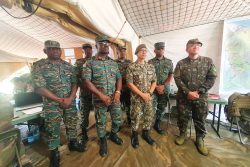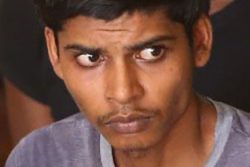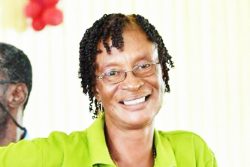(BBC) From across the Caribbean to Boston to London, the phones have been ringing off the hook with good wishes, requests for interviews, and general goodbyes.
The BBC’s Caribbean Service has had a busy week doing its final broadcasts and also finding time to make the Caribbean press for still breaking news in the last week.
In the final week, the comments made exclusively to BBC Caribbean by Trinidad and Tobago’s Prime Minister Kamla Persad-Bissessar on Britain’s Privy Council and the Caribbean Court of Justice made the Caribbean press.
In its final days of broadcasts, the official enquiry into support by Jamaica’s ruling party for strongman Christopher ‘Dudus’ Coke also topped the news agenda.
Final broadcasts
Each presenter with the Caribbean Service took a final broadcast during the last week.
The origin of the Caribbean Service was a programme called Calling the West Indies.
The programme began in 1939 featuring West Indian troops on active service during World War Two reading letters to their families.
From 1943 to 1958, the output became a programme called Caribbean Voices, highlighting West Indian writers.
Its producers and contributors included VS Naipaul, George Lamming, Andrew Salkey and Samuel Selvon.
In 1949, We See Britain was introduced as part of the programming for the Caribbean under the management of cricketer-turned-producer Ken Ablack.
Over the next three decades, the Caribbean Service nurtured producers and presenters, including Trevor McDonald who became one of the best-known newsreaders on British television and Jones Madeira who returned to the Caribbean to work with Caricom and many regional broadcasters.
The Service closed in the mid-1970s, but in 1988 it re-opened as a news and current affairs department.
It started with a 15-minute evening drivetime programme BBC Caribbean Report which then grew to a short morning drivetime news edition and a weekly BBC Caribbean Magazine programme which dealt with cultural issues and the human face of the news agenda.









